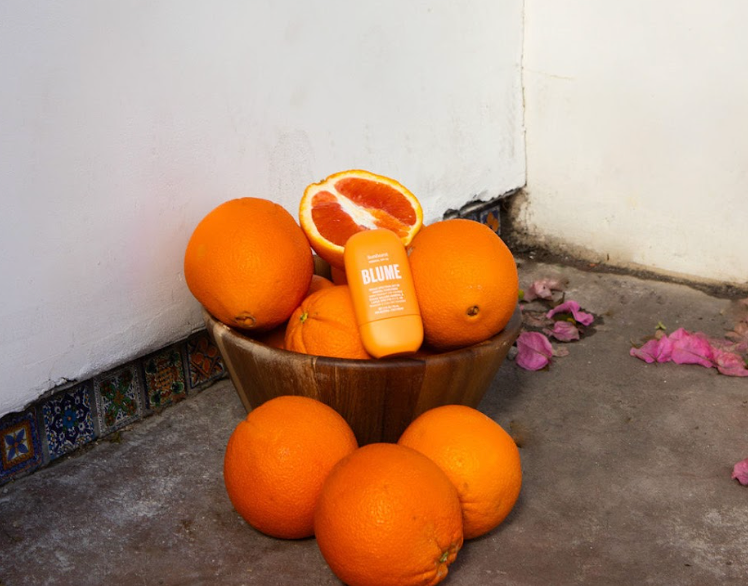Finding the best SPF for acne-prone skin can feel like a never-ending challenge. Many sunscreens clog pores, leave a greasy residue, or cause breakouts, making daily sun protection feel like a skincare nightmare. But protecting your skin from harmful UV rays is essential, especially if you're managing acne or sensitive skin.
Enter Blume’s Sunburst SPF 50, a mineral sunscreen formulated specifically for acne-prone, sensitive, and oily skin types. In this post, we’ll explain why Sunburst stands out as the ultimate acne-friendly sunscreen and how mineral sunscreens like it are changing the game for clear, healthy skin.
Why Sunscreen Is Essential for Acne-Prone Skin
Sun exposure can worsen acne by increasing inflammation, redness, and pigmentation (like dark spots or acne scars). According to a medically reviewed article from Verywell Health, “for those worried about clogged pores and acne, non‑comedogenic sunscreens designed for acne‑prone skin can prevent breakouts and protect against post‑inflammatory hyperpigmentation”.
The article also recommends avoiding chemical filters like oxybenzone and choosing hypoallergenic, mineral sunscreens with zinc oxide or titanium dioxide, which are less likely to irritate or clog pores.
Choosing a non‑comedogenic, oil‑free sunscreen, particularly a mineral formula like zinc oxide, helps protect against UV damage without risking clogged pores or new breakouts, making it essential for acne‑prone skin.
Mineral vs. Chemical Sunscreen: What’s Best for Acne?
There are two main types of sunscreens: mineral and chemical. Mineral sunscreens use physical blockers like zinc oxide or titanium dioxide to reflect UV rays, while chemical sunscreens absorb UV rays using synthetic compounds.
For acne-prone skin, mineral sunscreens tend to be the better choice. Here’s why:
-
Gentle on Sensitive Skin: Mineral ingredients are less likely to irritate or inflame acne-prone skin.
-
Non-Comedogenic: Zinc oxide and titanium dioxide don't clog pores.
-
Broad-Spectrum Protection: Mineral sunscreens block both UVA and UVB rays effectively.
-
Better for Daily Use: They’re less likely to cause allergic reactions or sensitivity.
Our article on Mineral vs. Chemical Sunscreen breaks down the pros and cons in detail, highlighting why dermatologists often recommend mineral options for sensitive and acne-prone skin.
What Makes Sunburst SPF 50 Ideal for Acne-Prone Skin?
Sunburst SPF 50 by Blume is a standout product for several reasons:
1. Non-Comedogenic and Oil-Free Formula
Many sunscreens use oils or silicones that can trap dirt and bacteria, leading to clogged pores. Sunburst uses a lightweight, oil-free formula specifically designed to be non-comedogenic. This means it won’t block your pores or worsen acne.
2. 100% Mineral-Based Protection
Sunburst relies on zinc oxide, a natural mineral ingredient known for its excellent sun protection and skin-soothing properties. Zinc oxide also has anti-inflammatory effects that can help calm irritated skin, making it perfect for acne-prone users.
Learn more about why mineral sunscreen is a must in your skincare routine from Blume’s expert insights.
3. Lightweight, Matte Finish
One of the biggest complaints about mineral sunscreens is their tendency to leave a white cast or feel heavy on the skin. Sunburst is formulated to absorb quickly, leaving a matte finish that controls oil and shine throughout the day. This makes it ideal for oily and combination skin types prone to acne.
4. Safe for Sensitive and Acne-Prone Skin
Sunburst is fragrance-free, cruelty-free, and free of harsh chemicals or preservatives that can irritate sensitive skin. This makes it a great choice for anyone dealing with acne-related skin sensitivity.
For more on why dermatologists recommend mineral sunscreen for acne-prone skin, check out this Blume article.
How to Incorporate Sunburst SPF 50 Into Your Skincare Routine
Using sunscreen correctly is just as important as choosing the right product, especially for acne-prone skin.
1. Apply Sunburst as the Last Step of Your Morning Routine
After cleansing, toning, and applying your acne treatments or moisturizers, gently apply a generous amount of Sunburst SPF 50. Mineral sunscreens work best when applied evenly and in sufficient quantity.
2. Reapply Every Two Hours
To maintain protection, reapply every two hours when outdoors. The Blume blog has great tips on how to reapply mineral sunscreen without ruining your makeup.
3. Use Under Makeup
Sunburst’s lightweight texture means you can wear it under makeup without worrying about clogging pores or making your skin greasy. Learn more about layering mineral sunscreen under makeup here.
Common Myths About Mineral Sunscreens and Acne
Many people hesitate to switch to mineral sunscreens due to myths around their texture and effectiveness. Here are some truths to keep in mind:
-
Myth: Mineral sunscreens cause a white cast.
Modern formulations like Sunburst have overcome this with micronized zinc oxide that blends invisibly. -
Myth: Mineral sunscreens are heavy or greasy.
Sunburst is oil-free and lightweight with a matte finish ideal for oily or acne-prone skin. -
Myth: Chemical sunscreens are more effective.
Mineral sunscreens provide excellent broad-spectrum protection without the irritation potential of some chemical filters.
Blume’s article on mineral sunscreen myths offers a deeper dive into common misconceptions.
External Expert Opinions
According to Dr. Shari Marchbein, a New York City-based dermatologist, mineral sunscreens containing zinc oxide or titanium dioxide are “generally less irritating and less likely to cause acne flare-ups,” making them ideal for acne-prone patients. (Source: Health Digest)
The American Academy of Dermatology also emphasizes that people with acne should “choose sunscreens labeled non-comedogenic or non-acnegenic” and often recommends mineral-based products for their gentler formulations.
Final Thoughts: Why Sunburst Is the Best SPF for Acne-Prone Skin
Sunburst SPF 50 hits the sweet spot for acne-prone skin by combining powerful mineral sun protection with a lightweight, non-comedogenic, and skin-soothing formula. It helps you safeguard your skin against damaging UV rays without the risk of breakouts or irritation.
If you’re struggling to find an effective sunscreen for oily and acne-prone skin, give Sunburst a try, it just might become your new skincare staple.



